(35301 products available)
























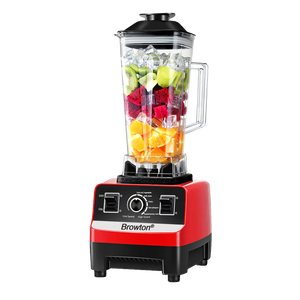



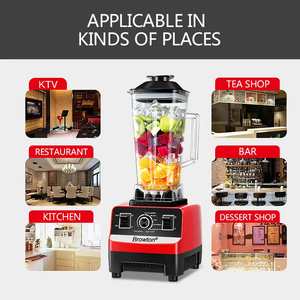



































































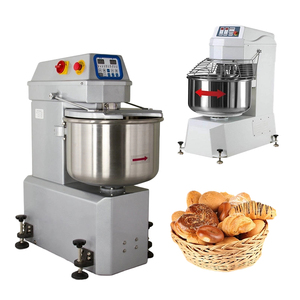




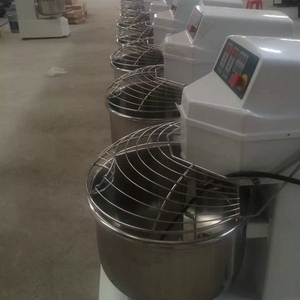







































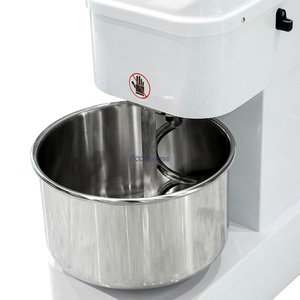


















































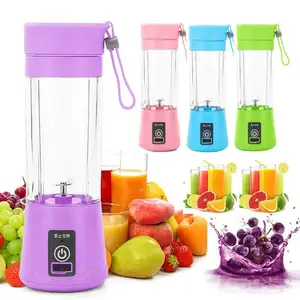





























A mixer machine is an equipment used to mix various products in different industries. There are many types of mixer machines based on usage and classification.
Knowing the specifications of a pasta mixer machine is essential when considering mixer wholesale products. Some key specs include the size, power, speed control, volume capacity, and materials.
Sustaining the performance and efficiency of a mixer is vital to regular maintenance. Adopting a routine care procedure can prolong the lifespan and prevent untimely breakdowns. The following suggestions can assist users in preserving the quality of their mixers:
Mixer machine wholesales are mainly for business buyers. They are still used in different baking industry applications. Some of them are listed as follows:
Large-Cafes
Large-cafes that are always experiencing heavy foot traffic shouldn't only have sample products on their menu. Instead, they should have a wide bakery product selection. This may include everything from artisanal bread to cookies and pastries. To meet the daily demand for bakery products, such cafes require high-performing mixers that can withstand continuous use yet produce considerable quantities.
Bread Industries
Since kneading dough for bread is tedious and tiring, bread industries have no choice but to use a mixer. The scale and volume of production in such industries require a mixer with greater capacity. This is the only thing that can ensure consistency in mixing.
Large Restaurants
Large restaurants don't settle for just one mixer. Instead, they have a variety of wholesale mixers to meet the demands of different recipes and menu items. The mixers they use are typically heavy-duty and stand at a commercial-grade standard. This helps ensure durability, efficiency, and great performance.
Food Production Units
Food production units are likely to use mixers with specific capabilities. This is to accommodate their distinct production requirements and processing techniques. When looking for mixers, such food production units might prioritize models that have certain features. These features include programmable settings, variable speed controls, and attachment compatibility.
Hotels
When it comes to baking, some hotels prefer to do it in-house instead of outsourcing to other bakeries. In-house baking helps ensure food security and maintain guests' standards. Because of this, the hotels that do this tirelessly require wholesale mixers to ensure smooth, efficient, and consistent mixing processes as they whip up a good variety of bakery items.
When choosing a mixer, it's essential to study the target market and know people buying behavior. Go for something that can serve various applications while still being energy efficient. Industrial food mixer machines are costly investments, so look for durable machines that will give returns over time. Check customer reviews and ratings of specific brands to ensure you settle for a machine that has proven performance.
The main reason people buy meat mixer machines is convenience. Therefore, the more automated the settings are, the better. Automatic and programmable settings make operating the machine easy and reduce the need for constant supervision. Look for mixers with automatic shut-off, preset programs, and safety features like overload protection and cool-down mechanisms. They make the running smooth and the maintenance effortless. Additionally, advanced programmable machines are attractive to buyers.
Versatility is attractive to most buyers. Look for a wholesale commercial mixer with several attachments and speeds to accommodate different recipes, textures, and ingredients. Attachments such as whisk, dough hook, and beater expand the functionality of the mixer. Customers will buy a mixer that will save them the cost of buying separate mixers for different purposes.
Food safety is crucial. When buying food mixers for sale, look for stainless steel mixers. Stainless steel does not corrode, and it's easy to clean. Additionally, when shopping for food mixers, check the cleaning requirements. Brands that offer removable parts make it easy for users to clean the mixers and maintain good hygiene. Consider mixers with dishwasher-safe components.
Q1: Why is mixer marketing important for business growth?
A1: Mixer marketing is crucial for business growth as it helps to create brand awareness, build customer loyalty, and drive sales. By connecting with customers emotionally and meeting their needs and desires, businesses can influence their purchasing decisions, leading to increased sales and market share.
Q2: What is the role of market mixing in marketing?
A2: Market mixing involves combining various marketing elements to develop a successful marketing strategy. It includes product, pricing, promotion, and distribution. Like cement mixers, diverse parts come together to form a sturdy and durable structure; the marketing mix components collaborate to create effective marketing initiatives that reach the target audience and achieve business objectives.
Q3: What are the benefits of investing in a concrete mixer?
A3: Investing in a concrete mixer can bring several benefits, such as cost savings, increased production, superior quality, greater control, multifaceted applications, and profitability. A concrete mixer helps businesses save expenses by producing concrete in-house instead of purchasing it from external suppliers. It also enhances production efficiency and allows for the timely availability of concrete. With a concrete mixer, businesses can control the quality of the concrete and ensure it meets the required standards.
Q4: What is the trend in the concrete mixer market?
A4: The concrete mixer market is experiencing growth due to urbanization and infrastructure development. The demand for commercial concrete mixers is high in construction, infrastructure, and manufacturing industries. In the coming years, it is expected that demand for commercial concrete mixer machines will continue to grow.